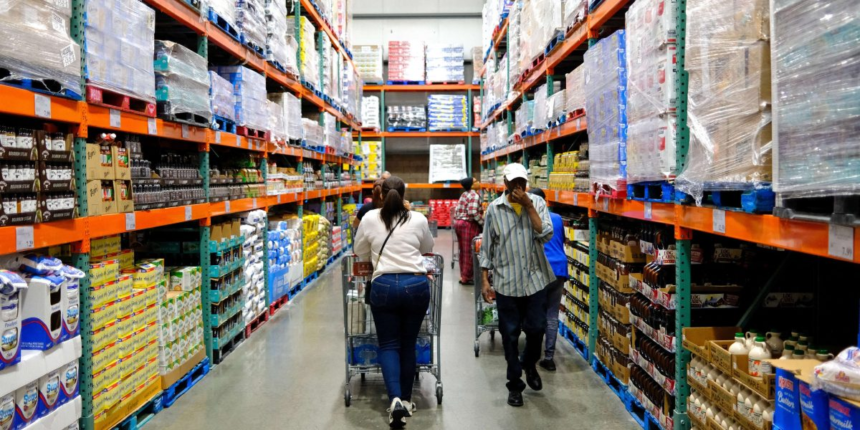While some on Wall Street are worried about a recession, recent economic data show that GDP growth is actually speeding up faster than earlier numbers indicated.
On Thursday, second-quarter growth was revised even higher, to 3.8% from a prior reading of 3.3%, on robust consumer spending. That’s after a first-quarter dip that was driven by President Donald Trump’s trade war.
Meanwhile, third-quarter growth is shaping up to be hotter. Durable goods orders for August jumped more than expected, according to data released on Thursday. And the personal income and spending report on Friday showed consumption remained healthy in August while also topping forecasts.
Given that consumer spending represents over two-thirds of the U.S. economy, the gains more than offset weakness in housing, which remains buffeted by high home prices and mortgage rates.
Growth may not stop at that lofty rate. Stephen Brown, deputy chief North America economist at Capital Economics, said in a note on Friday that the income and spending data should further ease fears that the U.S. is on the cusp of a sharp slowdown.
He also noted that discretionary spending, which typically is cut when consumers are suffering, drove growth. And while gains in spending have outpaced income for the last three months, the August savings rate was still at a relatively high 4.6%, meaning consumers are not yet overextended.
“The rise in real consumption in August means that, given the stronger momentum going into the third quarter, we now have third-quarter consumption growth tracking as high as 3.3%, up from 2.3% last week,” Brown added. “Third-quarter GDP growth will be as high as 4%.”
To be sure, stronger GDP also means the Federal Reserve will be under less pressure to lower rates aggressively. Capital Economics expects the Fed to cut at only one of its two remaining meetings this year, while Wall Street is betting on cuts at both meetings.
The gains in aggregate consumption also obscure the sharp divide among American consumers, and the growing reliance on top earners.
“As long as they keep spending, the economy should avoid recession, but if they turn more cautious, for whatever reason, the economy has a big problem,” Zandi noted.









